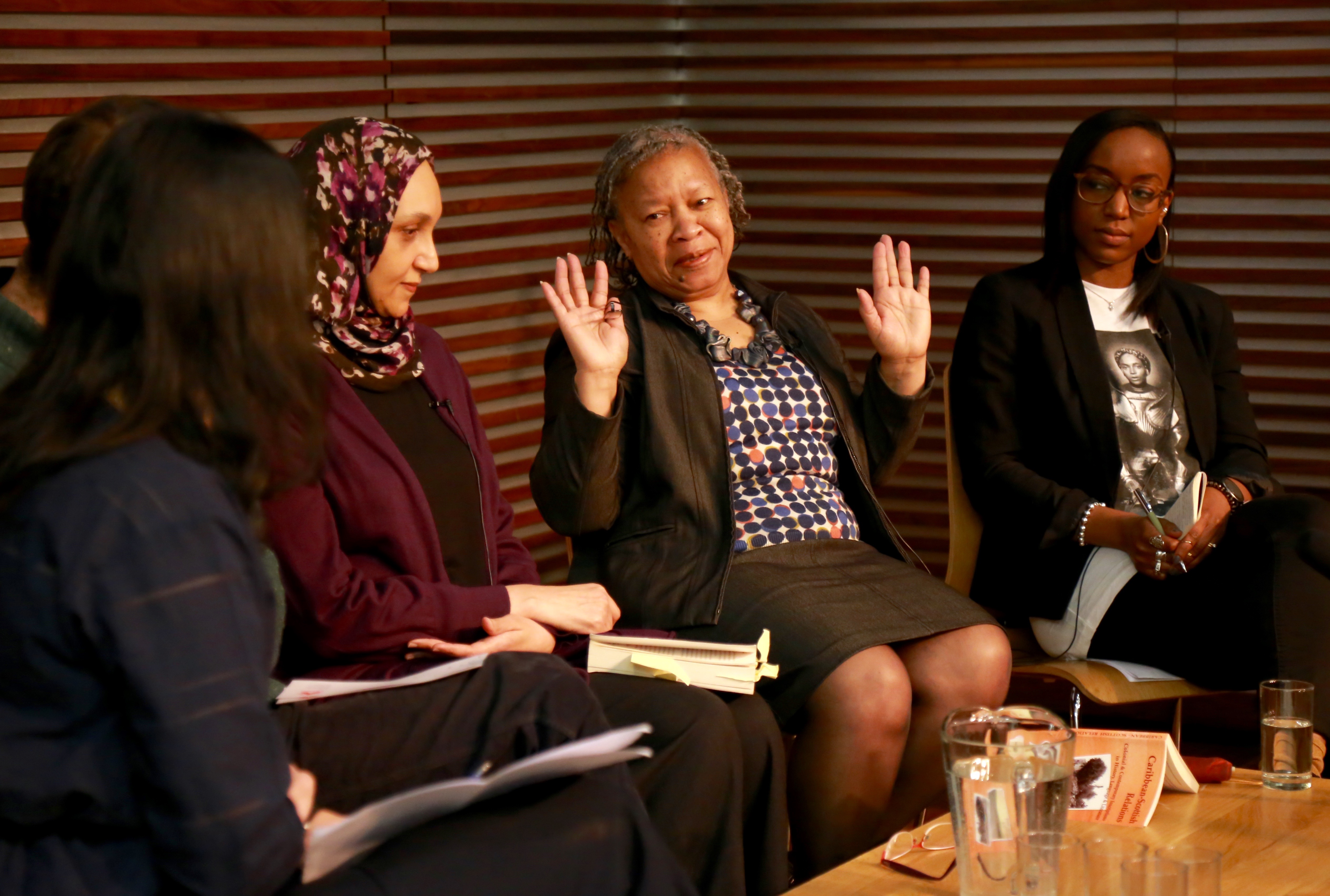“Being a writer is never what I was supposed to be.”
“Things have to change,” Afro-Caribbean author Joan Anim-Addo said to the audience before her on the very first edition of Bare Lit Festival in London, United Kingdom, aimed at rewarding the merits of BAME writers. “The world as we know it was never set up for us.”
As she continued, a diverse crowd of Black, Asian and White folks nodded in approval. “Being a writer is never what I was supposed to be. Being a professor in a London university is never what I was supposed to be,” she said, referring to the violent history of Caribbean people. “Resistance has become part of our DNA, so liberation is pretty much part of the principle on which I lived my life.”
The festival, held in the Free Word Centre in London on February 27-28, brought together seasoned and imminent writers of different genres such as Anim-Addo, all with one thing in common – none of them was White. The event emerged out of the critical need to diversify Literature, after a report by Spread the Word concluded that only 4% of the 2000 plus writers at English Literature festivals in 2014 were of Black or Asian ethnicity. All others were, evidently, White.

Panel: Radhika Swarup, Robin Yassin-Kassab, Leila Aboulela, Joan Anim-Addo and Sareeta Domingo / Photo Credit: Wasi Daniju
Samantha Asumadu, founder of Media Diversified, which organised the festival, said it “seemed imperative to do something” after she and her colleagues learned about the report:
“They (BAME writers) are out there doing the work already, and we know how hard they work on their own behalf to publicise their work, and get it out to more readers. We wanted to facilitate a way to help them with that.”
In the first panel discussion of Bare Lit Festival, other authors joined Anim-Addo to debate on diversity in literature in a session entitled “What does Liberation in Literature Look Like?” Among them were Leila Aboulela, Robin Yassin-Kassab and Sareeta Domingo in a discussion chaired by the Indian author Radhika Swarup.
“A couple of reviews I have received spoke about the aroma of turmeric infuses and Indian spices, but there is not one mention of turmeric in my book!” Swarup said half-jokingly, but lifting an important (metaphorical) veil on the stereotyping of certain cultures, which can be harmless, but equally damaging at times.
An example of this, brought by Robin Yassin-Kassab, is the book Maps for Lost Lovers by British-Pakistani author Nadeem Aslam. “It is a very, very good novel. I also think that it is profoundly unfair,” he said. “It is full with Muslim Pakistani characters, and they are all horrible, every single character is either doing an honour killing or beating somebody.”
The issue was not the misrepresentation of the Pakistani Muslim community in Nadeem Aslam’s novel alone. These characters were based on the author’s experience, and therefore, a form of expression. Rather, it was the role it played in portraying a society “already so badly represented.”
Yassin-Kassab went on to say that poor representations of certain communities are a social problem and if “we are going to put blame here, we should put blame on the society.”
However, literature as a form of art and self-expression in intrinsically linked to the present society and it is argued that artists have a social responsibility to uphold. In “Social Responsibility of the Artist”, Professor Howard Richards from Earlham College states that art has an effect on the public and “the role of the artist is a supremely important one: the art invents emotion”.
As Yassin-Kassab points out, one book denigrating Scottish people will cause no harm, “because there is a lot of information widely known” and appreciated about Scottish culture. So an author is free to express themselves. However, when a writer approaches sensitive topics, such as Islam, it can serve as a vehicle to further disinformation and misconception.
For that reason, diversity in literature seems to be essential. “Diversity is very good for alienating you, estranging you from your comfort zone, where you think you got everything understood and you know how everything works so you don’t really need to look carefully,” Yassin-Kassab said.
Bare Lit Festival, along with other initiatives such as the Jhalak Prize for writers of colour and the Precious Awards, which we wrote about previously, are starting to do just that. However, there needs to be more attention from publishers, who need to make “less lazy decisions based on false assumptions,” since the average reader in Britain is likely to be a middle-aged, Middle Class white women.
As a member of the audience asked the panel, “why do we assume these Middle Class women are not interested in reading Black literature?”

